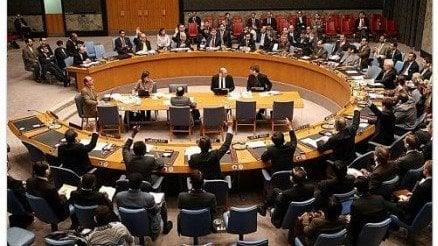ISLAMABAD:
Pakistan began its two-year term as a non-permanent member of the UN Security Council on Wednesday as it sought to boost multilateralism, dialogue and diplomacy to resolve bitter global disputes, including Palestine and Kashmir.
Pakistan was elected a non-permanent member of the powerful 15-member UN body for the period 2025-2026 in June 2024, receiving overwhelming support in elections held by the UN General Assembly in New York.
Pakistan got 182 votes out of 185 voted through secret ballot. Five other countries abstained from voting. Pakistan was one of the five candidates that participated in the elections for the non-permanent seat of the UN Security Council.
Pakistan, along with other non-permanent members, would serve a two-year term from January 1, 2025 to December 31, 2026, replacing Japan, Ecuador, Malta, Mozambique and Switzerland, whose terms end on December 31.
Pakistan received the backing of the 53-member Asian Group. Previously, the country served seven times on the Council: 2012-13, 2003-04, 1993-94, 1983-84, 1976-77, 1968-69 and 1952-53.
The Security Council is made up of 15 countries, including five permanent members and ten non-permanent members.
The 10 non-permanent members are elected by the General Assembly for a two-year period, which includes the 193 UN Member States, according to regional geographical distribution.
Voting is done by secret ballot and candidates must receive a two-thirds majority, or 128 votes, to be declared elected.
Deputy Prime Minister and Foreign Minister Senator Mohammad Ishaq Dar hosted a reception at the Ministry of External Affairs to commemorate the commencement of Pakistan’s tenure as a non-permanent member of the United Nations Security Council (UNSC) for the years 2025-2026. .
The event was attended by the heads of the resident missions of the member states of the UN Security Council in Islamabad and senior officials of the Ministry of Foreign Affairs.
On the occasion, the Deputy Prime Minister and Foreign Minister said that, elected for the eighth time, Pakistan brings to the Security Council a rich legacy of experience and an unwavering commitment to the principles and purposes of the United Nations Charter. He highlighted Pakistan’s contributions to international peace and security, especially through its active role in UN peacekeeping and peacebuilding efforts around the world.
The Deputy Prime Minister/Foreign Minister underlined that Pakistan looked forward to seeking a just and peaceful resolution of the situations on the agenda of the UN Security Council. As a member of the Council, Pakistan will continue to oppose the unilateral and unlawful use or threat of force; combat terrorism in all its forms and manifestations; and support effective United Nations peacekeeping and peacebuilding efforts.




